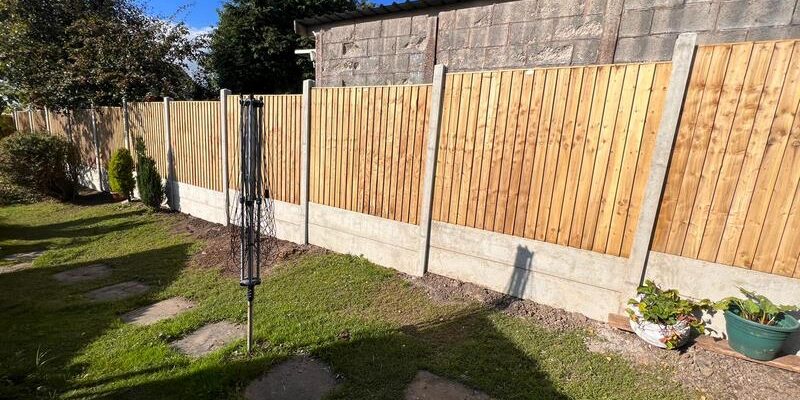The Importance of the Right Fence
A fence is more than just a boundary marker—it’s an essential part of your outdoor space’s aesthetic, security, and privacy. Choosing the right fence can complement your block paving and enhance your property’s appeal. This guide will help you navigate different fencing materials and styles to find the perfect fit for your unique needs.
Assessing Your Needs: Aesthetics, Security, and Privacy
Before picking a fence, it’s crucial to consider what matters most: Are you prioritising curb appeal, privacy from neighbors, or security to protect your family? Understanding your primary goals will help you select a fencing material and style that’s practical and visually pleasing.
Exploring Fencing Materials
Different fencing materials offer varying advantages:
- Wood Fences: Traditional and versatile, wood is a favorite for its natural charm. It can be stained or painted to fit your preferred look.
- Vinyl Fences: Modern and durable, vinyl fences require little maintenance and are ideal for those seeking a long-lasting, attractive option.
- Metal Fences: Ranging from simple chain-link to ornate wrought iron, metal fences offer security and durability while allowing visibility.
- Composite Fences: A mix of wood and plastic, composite fencing provides the appearance of wood without the maintenance hassle.
Fencing Styles Based on Different Needs
Once you’ve selected a material, consider these styles to meet your specific needs:
- Picket Fences: Known for their classic, quaint look, picket fences are great for defining garden boundaries while adding charm.
- Privacy Fences: Tall and solid, privacy fences block sightlines, providing seclusion from neighbors and passersby.
- Chain-Link Fences: Functional and cost-effective, chain-link fences are perfect for basic security and animal containment.
- Lattice Fences: Decorative lattice fences offer partial privacy while adding a stylish touch to the garden.
- Post and Rail Fences: Ideal for marking boundaries without obstructing the view, post and rail fences are often used in rural areas.
How to Pair Your Fence with Block Paving
To achieve a cohesive outdoor design, it’s crucial to blend your new fence with existing block paving:
- Choose colours that complement the paving stones.
- Select materials that match the paving’s texture or finish.
- Maintain consistent design styles, like contemporary or rustic, between the fence and paving.
Maintenance and Durability Considerations
Each fencing material requires a unique level of care. Wood requires regular staining or painting, while vinyl and composite fences need simple cleaning. Metal fences might require rust prevention. Choosing durable, low-maintenance materials will ensure your fence remains in top condition for years.
Professional Installation vs. DIY
While DIY installation may save money upfront, professional installers ensure a flawless, secure installation that meets local regulations. Investing in expert installation will also reduce future repair costs.
Conclusion: Selecting the Right Fence for Your Home
When selecting a fence, consider your primary needs, the local climate, and existing block paving styles. The right fence will enhance your outdoor space’s security, privacy, and aesthetic while blending beautifully with your block paving.
How do I choose between a wood and vinyl fence?
Wood offers a natural look and customizability but requires more maintenance. Vinyl is more durable and low-maintenance, with a clean, modern aesthetic.
Can I install a privacy fence on my own?
Privacy fences can be challenging to install due to their height and weight. Professional installation ensures the fence remains stable and meets regulations.
How high should a security fence be?
A security fence should ideally be over six feet high to deter intruders and prevent easy climbing.
What is the most durable fencing material?
Metal and composite are among the most durable materials, with high resistance to weathering and impact.
Is it possible to blend different fencing styles?
Yes, mixing styles like lattice tops on solid privacy fences can achieve both security and decorative appeal.
How often should I maintain my fence?
Maintenance frequency depends on the material. Wood fences require annual inspections and treatment, while vinyl and metal need cleaning a few times a year.

